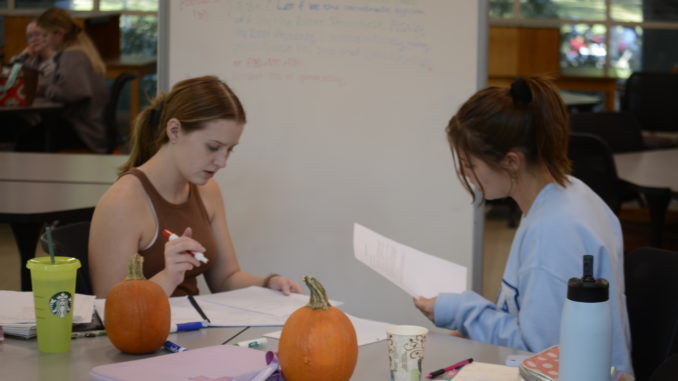
In the coming weeks, the Office of Civil Rights will send a proposed resolution agreement that, if accepted by the University, will allow OCR to monitor Truman State University to ensure it makes any remaining changes needed to make its websites more accessible. This will bring the investigation to a close, said University General Counsel Amy Clendennen.
The investigation was part of a national initiative to look into website accessibility, said Clendennen. The investigation was not a result of a complaint against Truman.
“So far the approach from OCR has been to reach out to universities to make sure that all of the websites are accessible without a student or … anybody having to ask,” said Chief Information Officer Donna Liss. “The whole idea behind this effort is to ensure all individuals are able to get the information needed from the website without having to contact anyone for assistance.”
The investigation was initiated in 2018 but did not begin until December 2021. While the effort with OCR was not able to start in earnest until that time, the IT department had already started making sure the website was accessible as part of the website redesign project, Liss said.
To make sure pages were compliant, they ran them through a tool called Wave, which would tell them what changes needed to be made to ensure it was accessible, Liss said. Examples of accessibility requirements include ensuring pages can be used by screen readers when scaled up to 300%, attaching descriptions to images and ensuring videos have transcripts.
Accessibility requirements have to be met for any website used by the University, which includes Blackboard and the Truman athletics website, which is currently operated by a third party vendor, Clendennen said.
The University also has a tool called Ally which will run a check on Blackboard or any other Learning Management System pages and documents and ensure they meet all the necessary levels of accessibility, Liss said.
It can also provide services to students, such as giving information about the color of images to people who are color-blind or helping people with ADHD stay on track while reading.
Clendennen said that made the process of working with OCR a smooth one. She and Liss also said the process had been very collaborative.
“I would say that part of it is that the University very much wants our technology and our websites to be accessible to people who have disabilities,” Clendennen said. “This isn’t the case where they’re asking us to do something we don’t want to do — we want to do it.”
Clendennen said she was impressed with how responsive Liss and her team were with the OCR’s requests. The OCR was also complimentary of her and her team, she said. Clendennen said she had been involved in previous OCR investigations that had not gone as smoothly or been as short.
The resolution agreement will say the investigation will be closed and the University will agree to continue making any needed changes. The University will report to the OCR to let them know they have done those things at a future date, Clendennen said.
In the future, there will continue to be systems in place that will ensure most content is compliant before it is uploaded to University websites, Liss said.
“It wasn’t a bad thing for us just to be able to hear some of the obstacles that users might encounter if they are trying to use our website and have disabilities,” Clendennen said. “We might not have otherwise known that, so it was actually educational on our part to have that information.”
Clendennen said she is aware there is a nationwide push of disability rights attorneys filing lawsuits on this issue, which could have been why OCR started investigating website accessibility.
Some of the responsibility for ensuring accessibility will fall on the IT department, and some will fall on professors or other people who upload content to University websites.
